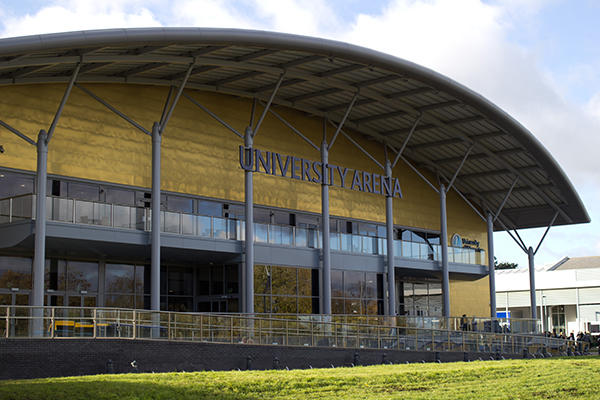The Universities Minister, Chris Skidmore MP, has called for more institutions to follow the lead of the University of Worcester in supporting students with disabilities.

Writing in The Guardian, he said: “Universities like Brunel and Worcester have long been leading the way in improving the disabled student experience, by enhancing support services available to them and designing facilities with accessibility in mind. I want institutions like these to no longer be the exception, but the norm.”
Lucy Conn, President of Worcester Students’ Union, welcomed his comments.
“I am pleased to see this recognition for the University of Worcester,” she said. “It is crucial that more is done nationally and across the sector to increase accessibility to tertiary education for those with disabilities.
“Being visually impaired, coming to the University of Worcester genuinely changed my life. I chose Worcester above institutions for the support it would give me, the compassionate culture and its welcoming atmosphere. My undergraduate experience encouraged me to run successfully for SU President, which a few years ago would have seemed impossible. Education has a huge role to play in helping everyone, regardless of their physical abilities to reach their potential.”
On the Government website, Mr Skidmore particularly praised the development of Worcester’s campuses.
“The University of Worcester, who have built their entire campus with accessibility in mind, are leading the way – there is no reason why other universities can’t follow suit and match their provision,” he said.
Worcester has taken the lead in designing all new facilities to be fully inclusive, including the award-winning University of Worcester Arena, Britain’s first indoor sports hall purpose designed to include the wheelchair athlete, and the new University of Worcester Art House, which will be formally opened next month. All new halls of residence are designed with larger than average bedrooms and communal spaces, so that students with disabilities are able to fully socialise rather than be confined to their own room. The University has also invested heavily in updating older buildings and facilities.
In addition, the University currently has plans in place to create the world’s first inclusive indoor cricket centre, which will help Worcestershire to become the national home of disability cricket, as well as a facility for the region’s children and cricketers.
The University of Worcester’s Pro Vice Chancellor Students, Ross Renton, said: “We are delighted that the Universities Minister has recognised our commitment to inclusion and accessibility and is encouraging a debate around this issue. Universities at their best are great engines for inclusion.
“The University of Worcester strives to do its best to include and to provide opportunities for those of all abilities, from all backgrounds, to make more of their own rich human potential. We are proud of the hard work our colleagues in support services put in to provide all of our disabled students with an outstanding experience.
“We are proud to be in the top 10 UK universities to best reflect society and to have gained an international reputation for the excellent work that so many colleagues at the University are involved in, including our innovative work in disability sport.
“We are working closely with partners across the world to share good practice and we hope to inspire others to follow suit.”
The Latest figures from the Higher Education Statistics Authority (HESA) show that in 2017/18 there were 26,100 more new students with a disability at English universities than in 2013/14 – an increase of 38 per cent.
Mr Skidmore said he was encouraged by the figures, but that there was more work to be done, and called on universities to consider the barriers that disabled students experience and the support on offer to them. He said, by working with key stakeholders and disabled students, he believed that more could be done to “break down access and participation barriers in higher education by focusing on spreading good practice and listening to disabled students about their needs”.